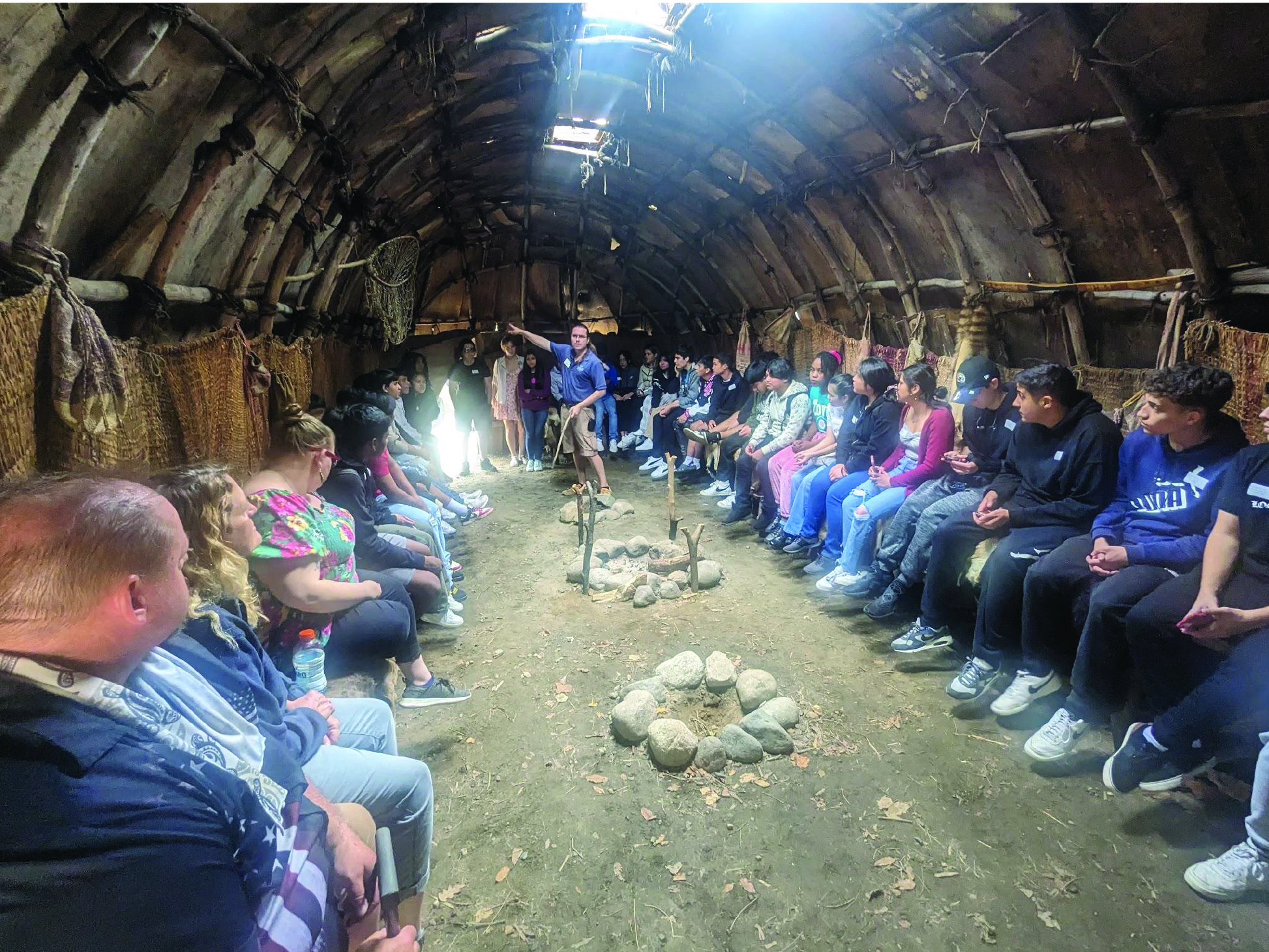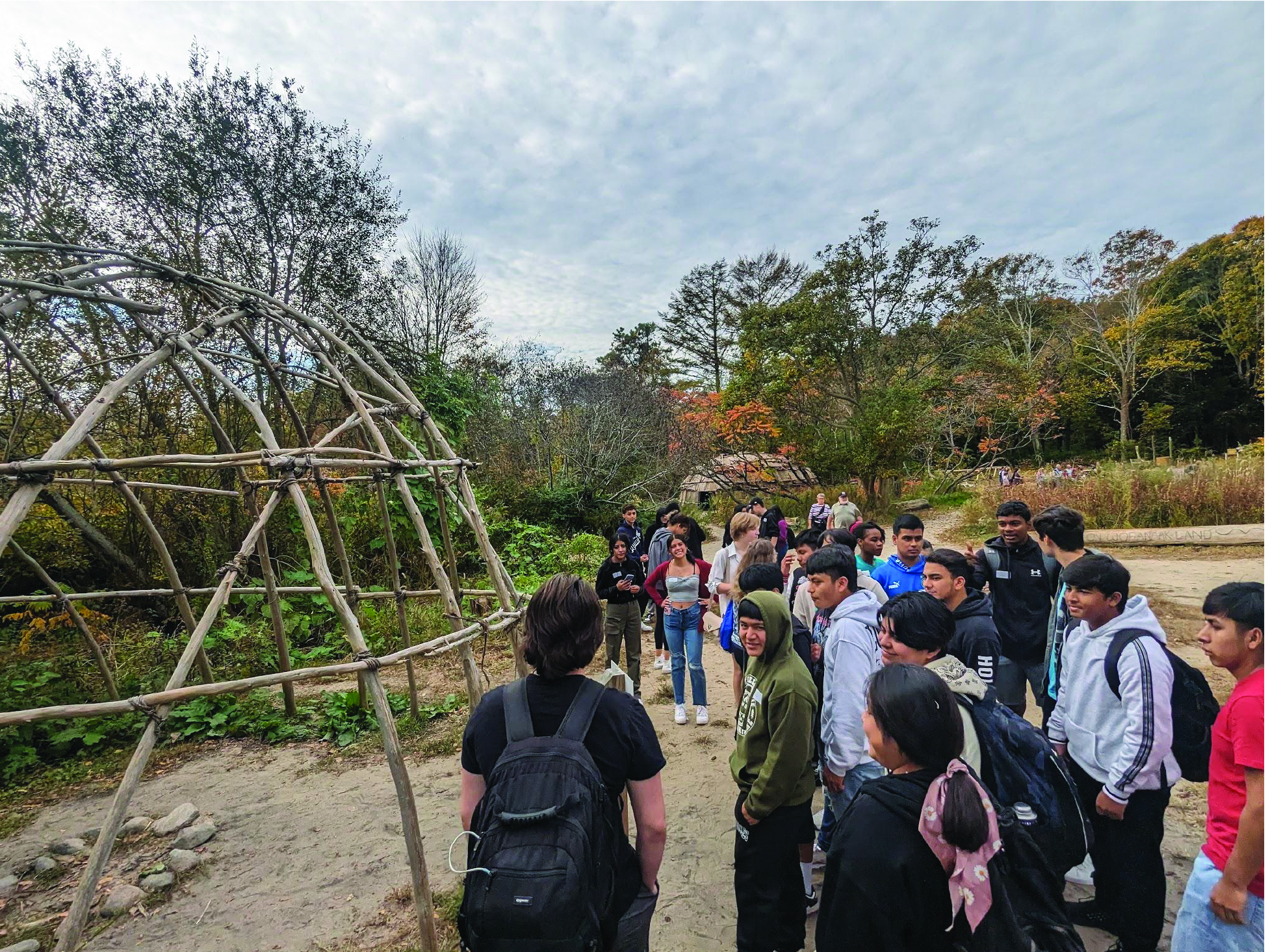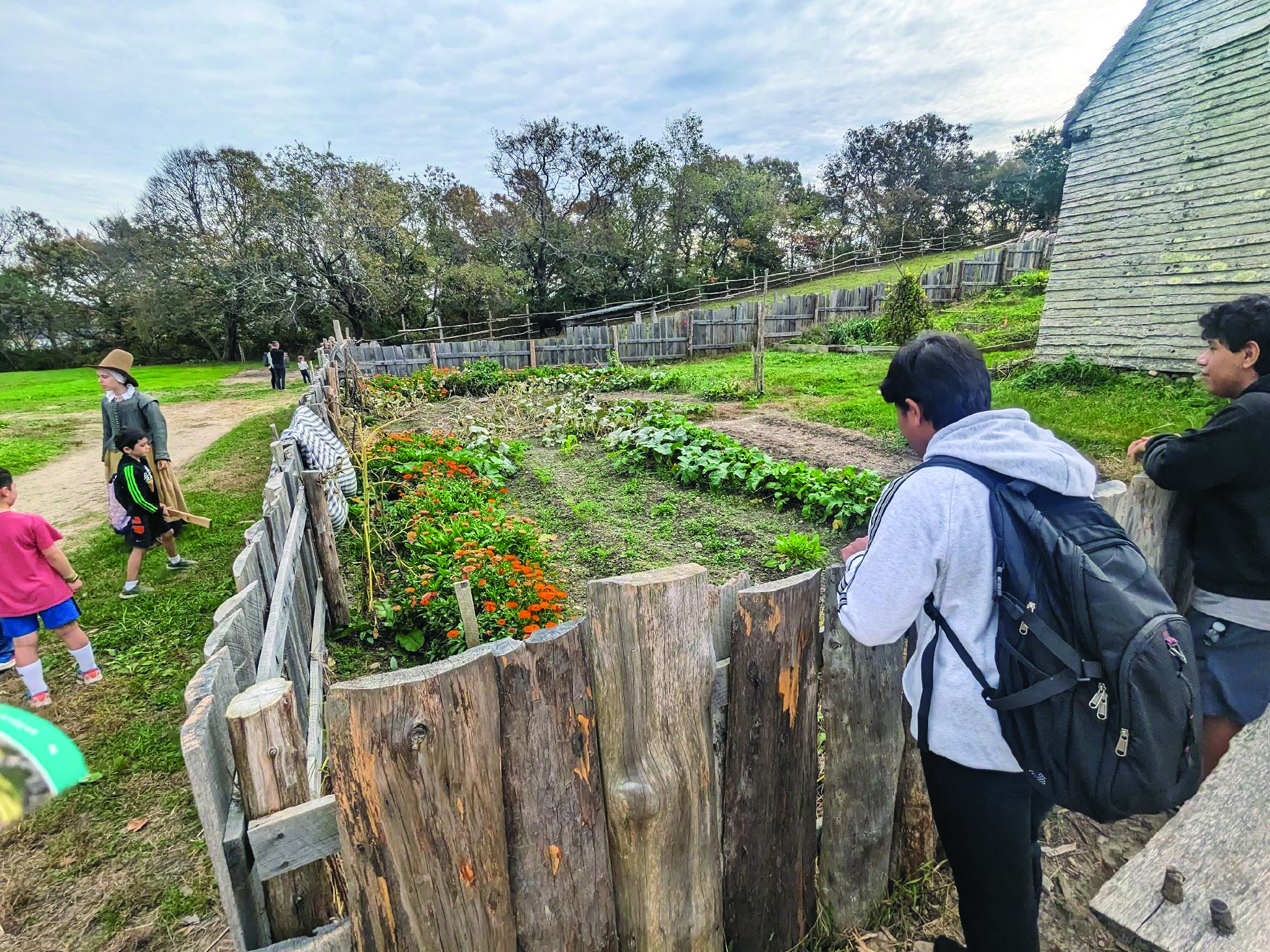
WESTBOROUGH – During a class at Westborough High School, students were studying the origins of the French and Indian War.
They discussed how and why the war started – which group possessed the land, why they were fighting, how they were treating the indigenous peoples, etc.
The students made their points in English, Spanish, Portuguese or whatever language they felt most comfortable in conversing.
This class, which is for English language learners (ELL), blends English into history and math in order to help students assimilate into a new language and culture.
Recently, as part of their studies in early American history, some of these students visited the Plimoth and Pawtuxet sites. The students were impressed by the farm animals, costumes and gardens, but had a tough time with the colonial reenactors speaking in the English dialect of the 17th century.
They had a better time visiting with the Wampanoags.
“They were asking about the deer skin, their houses,” said Jacqueline Coelho, team chair for the high school’s ELL program.
The trip was made possible through a grant from the American Battlefield Trust’s History Field Trip Grant Program. This trip provided students with a hands-on history learning opportunity. Grants are awarded based on a competitive national application process.
About the ELL program
The high school program currently has three faculty members – Coelho, Elizabeth Buenacosa and Alkeia Conerly – and about 70 students. They represent one component of a flourishing ELL program across Westborough Public Schools.
Many of these students come from Guatemala, Brazil, China, Russia, Ukraine, Cape Verde and a range of other countries.
“The ELL program offered in Westborough aims to equip students with the necessary tools and language abilities to achieve both academic and social success,” said Superintendent Amber Bock.
RELATED CONTENT: Inside Westborough’s English language learner program
She said the program has been successful and many students can exit the program by the end of third grade.
“As new students join the district, our teachers continuously employ effective strategies to facilitate a meaningful learning experience that fosters the development of English language and academic skills. We take great pride in our program’s accomplishments and the district’s committed staff,” said Bock.
Some of the students participating in the program have had interrupted educational experiences and require extensive support. Some students also contend with a technology gap; teachers show students how to leverage technology for learning, and they also help them understand social media and how to connect with new peers.
On top of that, some students also hold down full-time jobs in order to help their families, here and abroad.
“The kids are working 40 hours a week and sending money back home,” said Coelho.
Like all other students, they are required to learn English well enough to pass the Massachusetts Comprehensive Assessment System tests in order to graduate.
“That’s a big leap,” she said.
The teachers’ role is to provide a range of scaffolds to support entry to academics while expanding their working knowledge of language, content and culture. They employ a variety of methods, such as structured discussion of content, videos and PowerPoint presentations to preview background knowledge, and visuals connected to native language.
Social media plays a limited role.
“We sometimes use it,” said Coelho.
The students connect mainly on Instagram and the Class of 2026 Facebook page.
“It’s important to be part of the community,” she said.
“There’s no one ‘best way’,” said Conerly, when reflecting on how they work to connect with students and meet their learning needs.
Latisha Broomfield, the director of the ELL program for WPS, said she is proud of the strong team of faculty who support these students, to meet them where they are in their language development and to quickly give access to move toward complete independence and English language proficiency. These students usually exit the program within three-five years.
“My hat’s off to these students. Their resilience is just amazing to me. These are adolescent children who are facing adult problems,” said Coelho.


















